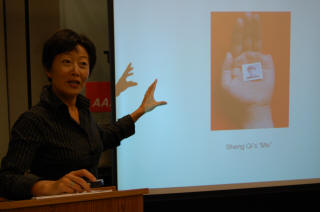
Missing Voices is an anthology of English translation of some 100 contemporary poems written by China’s 21st century writers who grew up after the 1989’s student uprising. This anthology attempts to uncover the missing voices of China’s contemporary generation. At a time in Chinese history when economic progress is a global obsession, I attempt to bring to western readers in English translation another important part of contemporary Chinese society – its poetry and art.

Destitute is not a word found in any description of China today, with its stratospheric economic growth threatening to upset the world order. Certainly the adjectives that apply to a success story of this magnitude would all seem to be antonyms to “destitute,” and most of the books and press devoted to the boom are replete with one hyperbole for prosperity. Yet material comfort was also the hallmark of the era that the poet Hölderlin characterized as “destitute,” a period when he perceived that Europe was suffering from a decline that had nothing to do with economics. In his view, night had fallen after Herakles, Dionysos, and Christ “left the world.” A bleak echo of his anxiety has crept into the poetry and art being made in the midst of the fastest growing nation in our own time. It poses a question that offers a new variant on Hölderlin’s timeless warning: Has Confucius left China?
Online Notes

